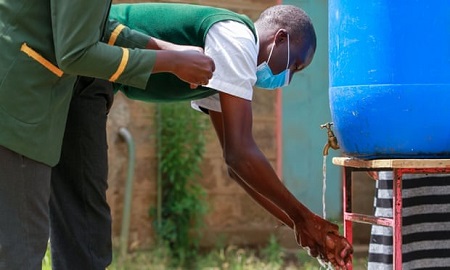The Covid-19 pandemic has exposed the catastrophic fallout of decades of global privatisation and market competition.
When the pandemic hit, we saw hospitals being overwhelmed, caregivers forced to work with virtually no protective equipment, nursing homes turned into morgues, long queues to access tests, and schools struggling to connect with children confined to their homes.
People were being urged to stay at home when many had no decent roof over their heads, no access to water and sanitation, and no social protection.
For many years, vital public goods and services have been steadily outsourced to private companies. This has often resulted in inefficiency, corruption, dwindling quality, increasing costs and subsequent household debt, further marginalising poorer people and undermining the social value of basic needs like housing and water. We need a radical change in direction.
There was a glimmer of hope when people seemed to recognise the crucial centrality of public services to the functioning of society. As French president Emmanuel Macron put it on 12 March, the pandemic had revealed that there are goods and services that must be placed outside the laws of the market.
Take water, a commodity all the more vital as washing your hands is one of the best ways to protect yourself from the virus. About 4 billion people worldwide experience severe water scarcity during at least one month of the year. In the Chilean Petorca province, for example, one avocado tree uses more water than the daily quota allocated to each resident. Despite increasing daily water allocation to residents, the ministry of health revoked this decision just eight days later – an indication of how authorities continue to put the interests of private companies above the rights of their people.
And what about the long-awaited vaccine? Recognising that we cannot rely on market forces, more than 140 world leaders and experts have called on governments and international institutions to guarantee that Covid-19 tests, treatments and vaccines are made available to all, without charge. But the reality is that pharmaceutical companies around the world are competing to sell the first vaccine.
The global mantra to practise physical distancing to avoid spreading the coronavirus is meaningless for the 1.6 billion people living in grossly inadequate housing, let alone the 2% of the world’s population who are homeless. Yet most governments seem unwilling to step back into the housing arena to regulate the financial organisations that have helped create these conditions. The financialisation of housing by these actors has for years resulted in higher rents, evicting low-income tenants, failing to properly maintain housing in good repair and hoarding empty units in order to increase their profits.
By continuing to opt for contracting out public goods and services, governments are paying lip service to their human rights obligations. Rights holders are transformed into the clients of private companies dedicated to profit maximisation and accountable not to the public but to shareholders.
This affects the core of our democracies, contributes to exploding inequalities and generates unsustainable social segregation.
We are six UN independent experts from many different backgrounds, current and former special rapporteurs on a range of economic, social and cultural rights. It is in this capacity that, together, we want to share this message: if human rights are to be taken seriously, the old construct of states taking a back seat to private companies must be abandoned.
New alternatives are necessary. It is time to say it loud and clear: the commodification of health, education, housing, water, sanitation and other rights-related resources and services prices out the poor and may result in violations of human rights.
States can no longer cede control as they have done. They are not absolved of their human rights obligations by delegating core goods and services to private companies and the market on terms that they know will effectively undermine the rights and livelihoods of many people. It is equally crucial that multilateral organisations, such as the World Bank and the International Monetary Fund, stop imposing financialised models and the privatisation of public services on countries.
This is also a pivotal moment for the human rights community. We call on all those committed to human rights to address the consequences of privatisation head on. Human rights can help articulate the public goods and services we want – participatory, transparent, sustainable, accountable, non-discriminatory and serving the common good.
We are in a state of emergency. This is probably the first of a series of larger crises awaiting us, driven by the growing climate emergency. The Covid-19 crisis is expected to push another 176 million people into poverty. Each of them may see their human rights violated unless there is a drastic change of model and investment in quality public services.
Global markets have failed to provide people with basic needs like housing and water, say present and former UN special rapporteurs:
- Juan Pablo Bohoslavsky is the former UN independent expert on foreign debt and human rights;
- Koumbou Boly Barry is UN special rapporteur on the right to education;
- Olivier De Schutter is UN special rapporteur on extreme poverty and human rights; and former UN special rapporteur on the right to food;
- Leilani Farha is the former UN special rapporteur on adequate housing as a component of the right to an adequate standard of living, and on the right to non-discrimination in this context;
- Léo Heller is UN special rapporteur on the human rights to safe drinking water and sanitation;
- Magdalena Sepúlveda Carmona is the former UN special rapporteur on extreme poverty and human rights
Photo: By continuing to opt for contracting out public goods and services, governments are paying only lip service to their human rights obligations. Source: Boniface Muthoni/SOPA Images/REX/Shutterstock.














